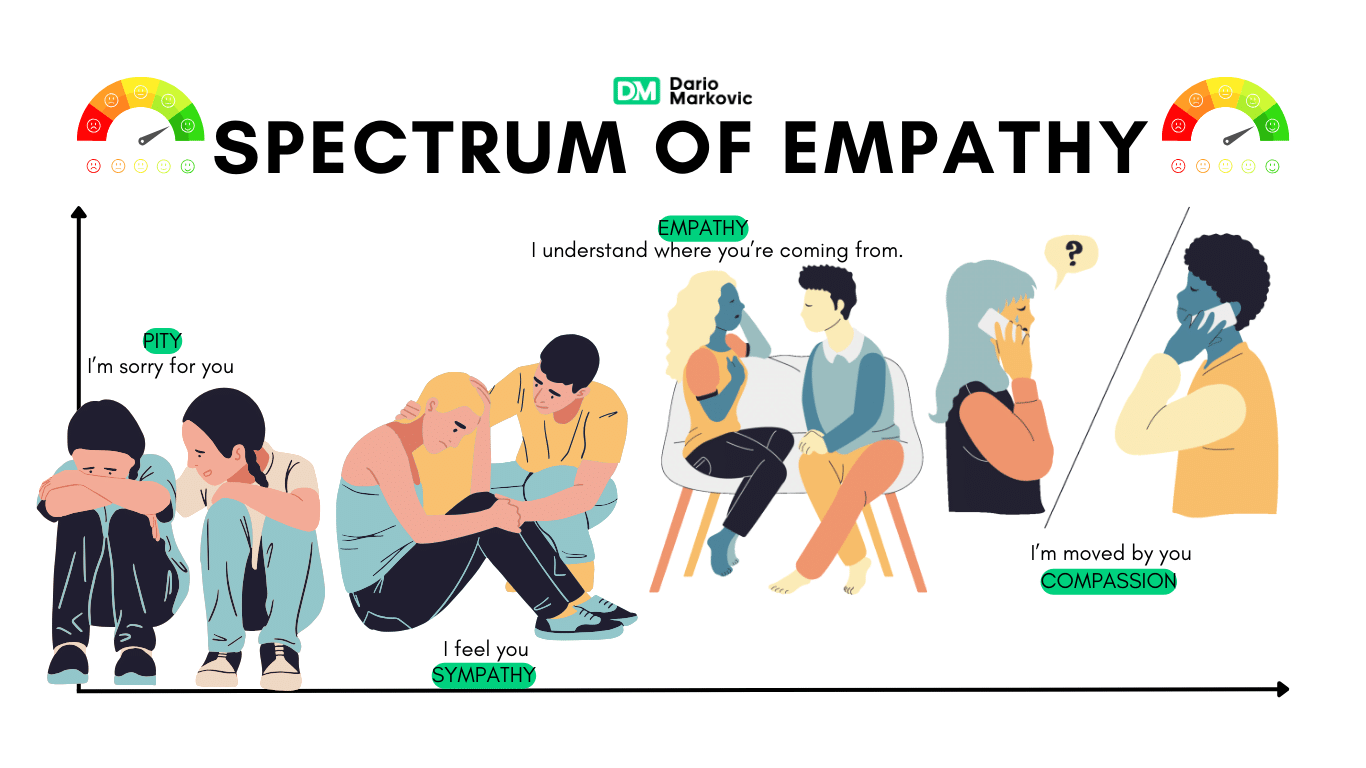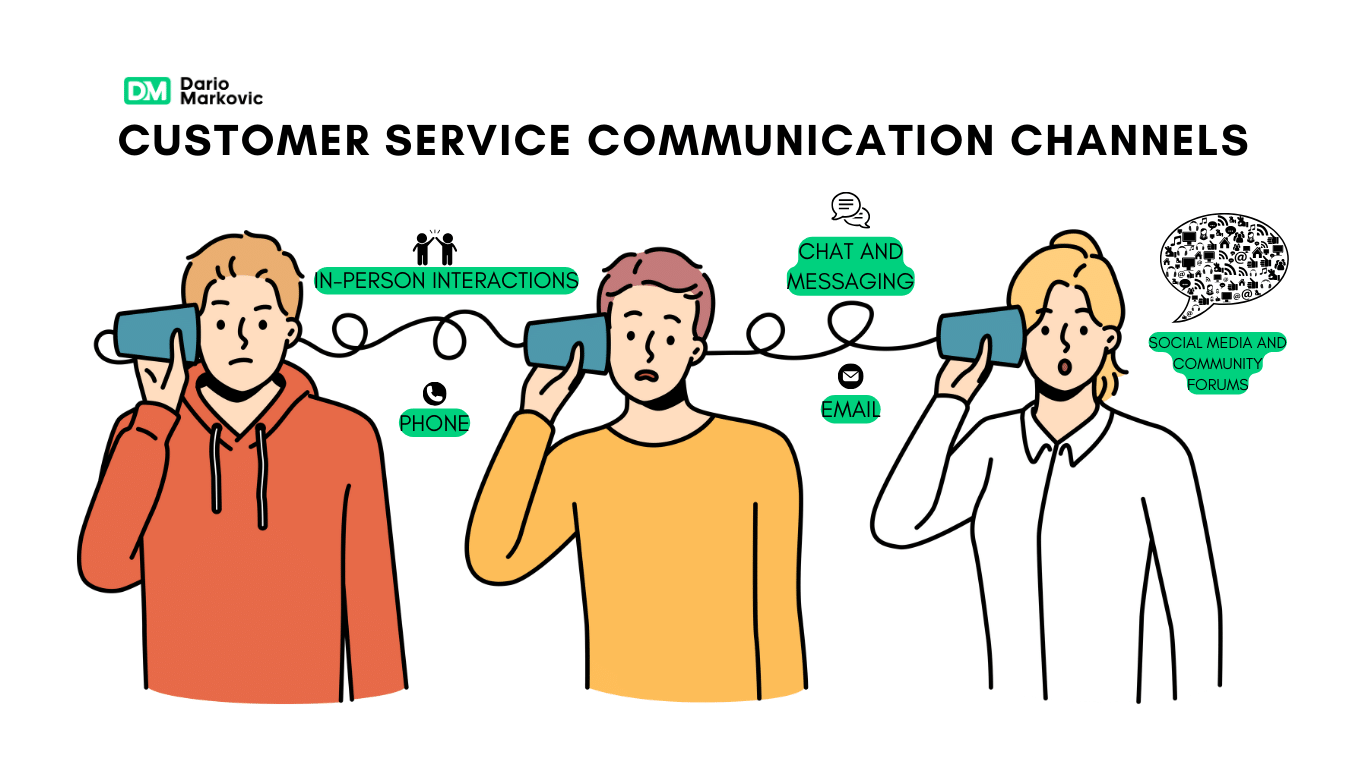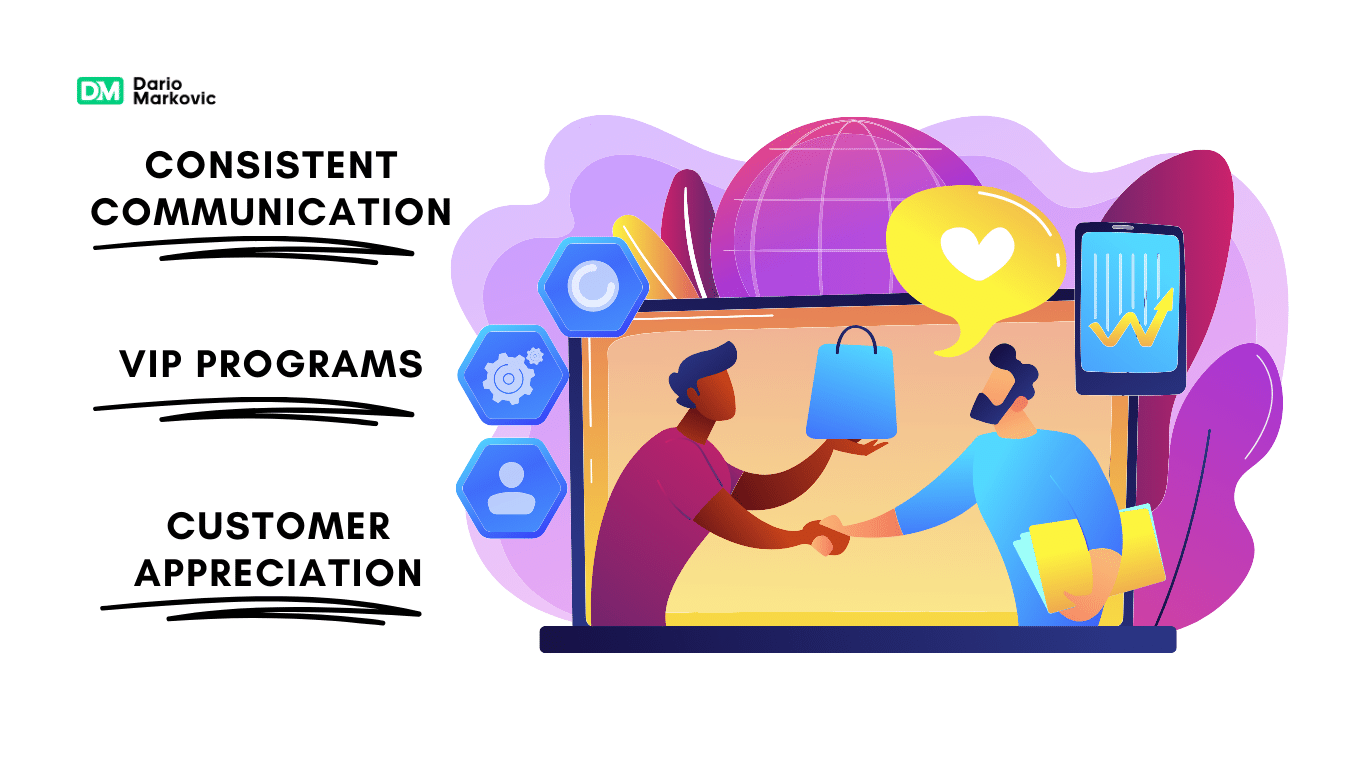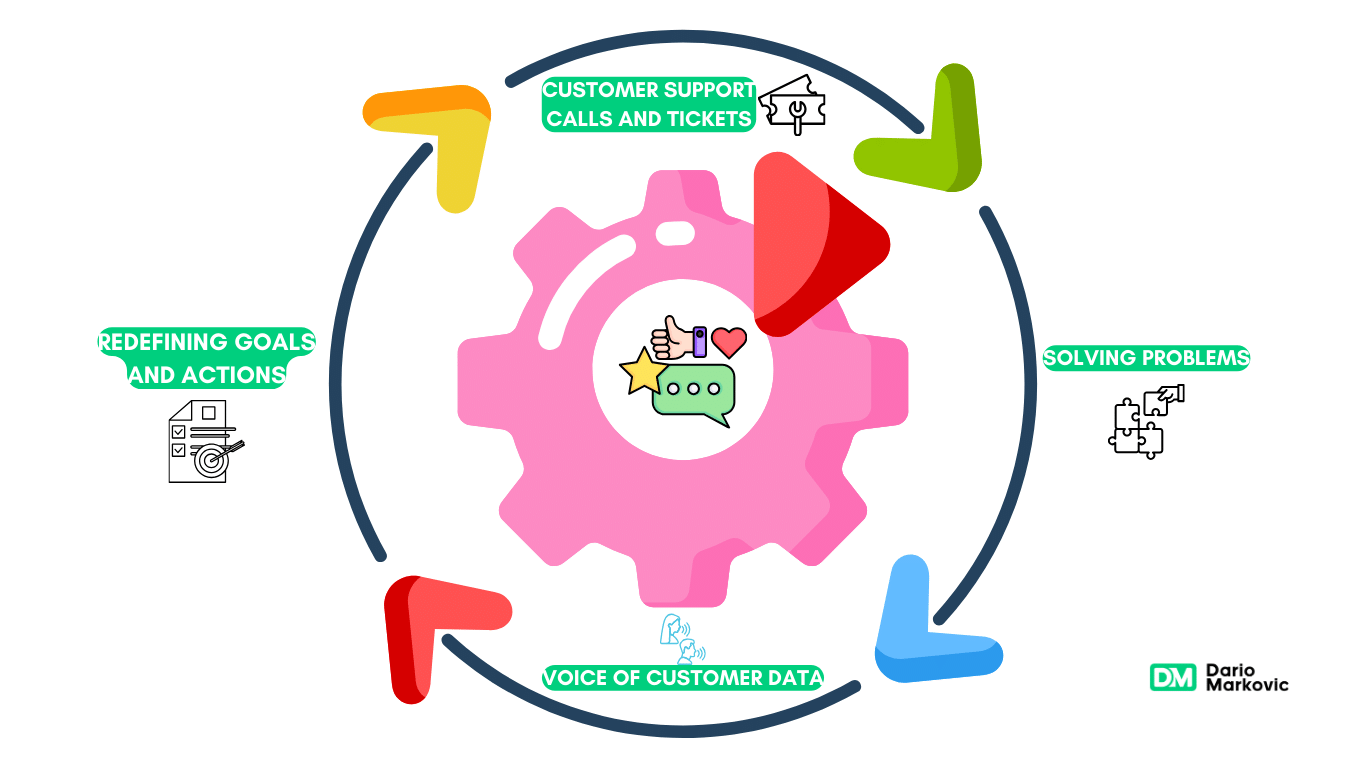So buckle up. We’re about to dive deep into what does good customer service mean to you, not just good, but exceptional.
Let me tell you something I’ve learned after years of working with ecommerce businesses and customers: good customer service isn’t just about fixing problems. It’s way deeper than that.
I remember a time when I was just starting out in my career, thinking customer service was purely transactional. I was wrong. Every service interaction is an opportunity—a chance to turn a frustrated customer into a loyal fan, or transform a routine exchange into something truly memorable.
Think about the last time someone went above and beyond for you. Maybe it was a customer service representative who didn’t just solve your issue, but made you feel genuinely heard. That’s the magic of exceptional customer service. It’s not a department or a checklist; it’s an entire philosophy of treating people with respect, empathy, and genuine care.
In today’s hyperconnected world, customers aren’t just looking for solutions. They’re craving connections. They want to feel valued, understood, and appreciated. Good customer service is like building a bridge of trust—one service interaction at a time.
This isn’t about corporate jargon or scripted responses. It’s about creating real, human moments that make customers think, “Wow, these people really get me.” It’s a strategic approach that transforms routine interactions into something extraordinary.

Understanding the Meaning of Good Customer Service
Good customer service can be defined simply as the assistance and support provided to customers before, during, and after their purchase experience. It includes various service interactions that aim to meet customer needs and go beyond their expectations.
Key characteristics that define excellent customer service include:
Delivering outstanding customer service is essential for any thriving business.
Here are the key traits that distinguish great customer service:
Quickly addressing customer inquiries or concerns is vital. Timely responses not only resolve issues more efficiently but also demonstrate a brand’s commitment to customer satisfaction. A swift reply can transform a potentially negative experience into a positive one.
Recognizing and valuing customer needs plus emotions is crucial for building relationships and trust. When service representatives truly listen and respond with understanding, it fosters a meaningful connection that leaves a lasting impact. Empathy elevates ordinary transactions into memorable experiences.

Knowledgeability
Knowledgeable staff are invaluable resources. A deep understanding of products and services allows them to provide accurate information and effective solutions. Customers appreciate representatives who can confidently answer their questions and offer reliable advice.
Effective Communication
Clear and concise communication, respectful proactive approach ensures customers feel acknowledged and understood. Active listening combined with straightforward explanations promotes smooth interactions and minimizes misunderstandings, ultimately creating positive experiences.

By excelling in these qualities, businesses can cultivate loyalty, enhance their reputation, and differentiate themselves in competitive markets.
Key Principles and Attributes of Good Customer Service
Delivering great customer service hinges on several key principles and attributes that create a lasting impact on customer perceptions and experiences.
1. Friendliness and Approachability
A welcoming demeanor and first impression is essential in creating a comfortable environment for customers. Friendly interactions can set the tone for positive exchanges, making customers feel valued. This approach encourages open communication, fostering building trust and customer loyalty.
2. Fairness
Equitable treatment is vital when addressing customer concerns. Fairness ensures that all customers receive consistent responses and solutions, enhancing their perception of your brand. Implementing clear policies that prioritize fairness helps eliminate biases, ultimately leading to increased customer satisfaction.
3. Timely Information Delivery
Quick responses are crucial in effective customer service delivery. Customers expect prompt answers to their inquiries, which can significantly influence their overall experience. Timeliness not only helps resolve issues faster but also communicates respect for the customer’s time.
4. Speed and Reliability
Resolving inquiries swiftly contributes to customer retention. A quick resolution reduces frustration, preventing churn while maintaining high satisfaction levels. Reliable service reinforces customer confidence in your brand, demonstrating that their needs will always be met efficiently.
5. Attention to Detail
Small details can have a remarkable effect on customer perceptions. Recognizing nuances—such as remembering a returning customer’s name or preferences—can elevate the overall customer experience from satisfactory to exceptional. Paying attention to these elements signals genuine care and commitment to providing great customer service.

Integrating these customer service principles into daily operations not only enhances the customer experience but also strengthens the relationship between customers and brands, setting the stage for long-term loyalty and positive reputation.
The Impact of Good Customer Service on Business Success
Delivering excellent customer service significantly influences business growth. A positive customer service means and fosters an enhanced reputation, making a brand more appealing to potential customers.
Businesses known for their outstanding service often enjoy increased brand loyalty, as satisfied clients are more likely to return and advocate for the brand.
Key benefits include:
- Strong Relationships: Building genuine connections with customers leads to long-lasting relationships. Customers who feel valued are more inclined to share their experiences, contributing to organic word-of-mouth marketing.

- Increased Repeat Business: Retaining existing customers is often more cost-effective than acquiring new ones. Positive interactions can turn first-time buyers into repeat clients, significantly boosting revenue.
- Referrals and Recommendations: Happy customers tend to refer friends and family. This network effect can create a steady influx of new clientele, further enhancing business success.
The cumulative effect of these key elements practices cultivates an environment where customer loyalty thrives. Brands that prioritize good service not only meet expectations but also create memorable experiences that resonate with their audience.
Such commitment ultimately transforms customer relationships into valuable assets for sustained business success.
Best Practices for Delivering Exceptional Customer Service on a Budget
Delivering exceptional customer service does not require extensive resources. Implementing effective dos and avoiding common don’ts can significantly enhance the customer service position and experience.
Essential Dos
- Active Listening: Pay close attention to what customers say. This demonstrates respect for their concerns and helps in accurately addressing their needs.
- Show Genuine Care: Make customers feel valued by expressing empathy and consistent appreciation. A simple acknowledgment of their issues can foster a stronger connection.
- Personalize Interactions: Tailor your responses based on previous interactions. Remembering details about clients can create memorable experiences. Be aware of your customer service role.
- Be Proactive: Anticipate customer needs and provide solutions before they ask. This approach shows that you understand and value their time.
Common Don’ts
- Ignoring Feedback: Dismissing customer feedback can damage trust. Always encourage, acknowledge, and act upon suggestions for improvement.
- Being Overly Scripted: Following a rigid script may hinder authentic interactions. Aim for natural conversation to build rapport with customers.
- Delaying Responses: Slow replies can frustrate customers. Strive for timely communication skills to keep them informed and satisfied.
- Neglecting Small Details: Overlooking minor aspects, such as spelling a customer’s name correctly or following up on previous conversations, can negatively impact their perception of your brand.
By focusing on these personalized service practices, businesses can deliver great service that fosters loyalty and strengthens relationships with their clientele, even when resources are limited.
Leveraging Technology to Enhance Customer Service Efficiency Without Losing Personal Touch

In the digital age, businesses can significantly enhance customer service efficiency through technology while preserving the essential human connection.
Key customer service support tools include:
1. Chatbots
These AI-driven systems can handle basic inquiries swiftly, allowing customers to receive immediate responses. This reduces wait times and frees human agents to tackle more complex issues that require a personal touch.

2. CRM Software (e.g., Zendesk)
Implementing customer relationship management software helps streamline processes by organizing customer interactions. With features like ticketing systems and interaction history, agents can quickly access relevant information, ensuring informed and personalized responses.
Utilizing these technologies effectively means not losing sight of the human element.
Here are ways to maintain that connection:
- Personalized Interactions: Even when using automated systems, businesses can program chatbots to greet customers by name or recall past interactions, fostering a sense of familiarity.
- Empathy in Responses: Human agents should be trained to respond with empathy, acknowledging customer concerns and feelings despite the technological backdrop.
By integrating these automation toolsthoughtfully, businesses can create a seamless experience that balances efficiency with genuine care for their clientele.
Personal Experience: What Customer Service Means to Me?
At Eric Javits, we have seen customer service as more than just answering questions—it’s about challenging situations and crafting a personalized experience that helps customers make informed choices.
Throughout the years, I’ve witnessed how our team goes beyond merely providing information. We actively engage with our customers to grasp their individual needs, preferences, and occasions, ensuring they feel confident and stylish in their selections.
A standout example is how we assist our customers in choosing the ideal accessories for their outfits. Many clients have expressed their challenges—whether it’s finding the right hat to complement a summer dress or figuring out the best combination of a bag, hat, and shoes.
Our customer service team views these moments as chances to forge connections. They ask insightful questions, such as:
– What outfit are you planning to wear?
– Do you have a specific color or style in mind?
– What’s the occasion, and what matters most to you—comfort, style, or versatility?
By exploring these details, we provide customized solutions. For instance, if someone is uncertain about which hat goes well with a summer dress, our team might recommend a wide-brimmed sun hat in a neutral shade that matches effortlessly with various outfits. For a customer unsure about how to mix accessories, we suggest options like coordinating colors or contrasting textures that fit their wardrobe.
This level of attention not only makes the decision-making process easier but also fosters trust. Customers know they can count on us for support, and we take pride in helping them look and feel their best in a positive light for any occasion.
To me, this embodies exceptional customer service—being a reliable partner, offer guidance in our customers’ style journeys.We provided specific examples for the price that they paid.
What Employers Look For In Candidates Who Understand The Importance Of Good Service Delivery System
When preparing for customer service interviews, candidates should emphasize their understanding of good service through concrete examples.
Here are key strategies to showcase this:
1. Highlight Relevant Experiences
Share specific instances where you went above-and-beyond for a customer. For example, describe a situation where you resolved a complex issue or provided personalized assistance that exceeded the customer’s expectations.
2. Demonstrate Empathy and Problem-Solving Skills
Discuss how you actively listened to customer concerns and addressed their needs effectively. This can illustrate your ability to connect on a human level, aligning with what good customer service means.
3. Answering Customer Service Interview Questions
Be prepared to articulate your perspective on what constitutes good customer service. Reflect on how you prioritize responsiveness, fairness, and attentiveness in your interactions.
Employers look for candidates who not only understand these principles but also embody them through real-world applications.
Continuous Improvement Is Key To Excellence In Providing Quality Support To Your Clientele Base Over Time
Improving customer service skills is essential for maintaining a competitive edge in today’s marketplace. Encouraging ongoing learning within your team fosters an environment of excellence.
Here are key strategies to enhance customer service:
Seek Feedback: Actively solicit feedback from customers after each interaction. This provides valuable insights into areas needing improvement.

Analyze Responses: Review feedback systematically to identify common trends or recurring issues. This can unveil specific aspects of service that require attention.
Invest in Training: Implement regular training sessions focused on developing interpersonal skills, product knowledge, and problem-solving techniques.
Encourage Team Discussions: Create opportunities for team members to share experiences and lessons learned from various interactions. Peer learning can drive innovation in service delivery.
By embedding these practices into your organizational culture, your team will continuously evolve, ensuring that customer support remains exemplary and aligned with client expectations.
My Conclusion
Understanding good customer service revolves around creating meaningful connections.
- Meeting or exceeding expectations is paramount.
- Personalized interactions enhance customer experiences.
- Effective problem-solving techniques foster trust and satisfaction.
A loyal clientele emerges from these practices, advocating for your brand consistently over time. This commitment to exceptional service not only drives business growth but also shapes positive perceptions among customers.
Consider what good customer service means to you and how implementing these principles can transform your approach in meaningful ways.
FAQs What Does Good Customer Service Mean to You
How does good customer service impact business success?
Delivering excellent customer service enhances a business’s reputation and fosters brand loyalty. Long-term benefits include building strong relationships with customers, leading to increased repeat business and referrals.
What are some best practices for delivering exceptional customer service on a budget?
Essential best practices include actively listening to customers, showing genuine care for their needs, and avoiding common pitfalls such as ignoring feedback or being overly scripted in responses. These dos and don’ts can help maintain positive relationships with clientele.
How can technology be leveraged to improve customer service without losing the personal touch?
Businesses can use technology tools like chatbots or CRM software (e.g., Zendesk) to streamline processes while ensuring that human connection is maintained during interactions. This combination allows for efficient service delivery without sacrificing personalization.
What should candidates focus on during customer service interviews?
Candidates should showcase their understanding of good service by providing relevant examples from previous experiences where they went above-and-beyond to assist clients or resolve issues. Demonstrating a commitment to excellent service delivery is key to impressing potential employers.
What does good customer service mean to you?
Good customer service can be defined as the ability to meet or exceed customer expectations through responsive, empathetic, and knowledgeable interactions. It plays a crucial role in fostering emotional connections between customers and brands, which can significantly contribute to business growth.



